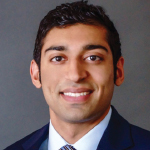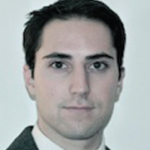ENT Mentorship Program for Preclinical Medical Students
 Ateam of researchers from The Ohio State University Wexner Medical Center in Columbus embarked on an effort to increase early exposure to otolaryngology. Rishabh Sethia MD, a first-year otolaryngology resident, presented the work, “ENT Mentorship Program for Preclinical Medical Students.”
Ateam of researchers from The Ohio State University Wexner Medical Center in Columbus embarked on an effort to increase early exposure to otolaryngology. Rishabh Sethia MD, a first-year otolaryngology resident, presented the work, “ENT Mentorship Program for Preclinical Medical Students.”
Explore This Issue
July 2019Existing research shows that medical students have limited early exposure to surgical specialties, with only 59% of medical schools requiring a preclinical otolaryngology module. Additionally, he said, “The otolaryngology residency match is only getting more competitive: In the class of 2018, 95% matched, while in the class of 2019, it was only 71%.”
The goals of the program were to increase early exposure to otolaryngology by introducing surgical mentorship, providing education on the residency application process, and offering career advising/networking/research opportunities. The ENT Mentorship Program the researchers developed involved a minimum of eight hours per month in the clinic or operating room. Each participant was matched with an otolaryngology faculty member who became involved in the student’s research.
Program evaluation was based on final oral presentations and mentor evaluations, and students were eligible for pre-clinical elective credit through The Ohio State University College of Medicine (OSUCOM). The investigators hosted a pre-residency transition and administered longitudinal surveys.
Thirty-five students have participated in the program since it began. Of surveyed students, 54% reported no previous exposure to otolaryngology and 62% became involved in otolaryngology research due to connections built during this program, said Dr. Sethia.
The post-program survey asked participating and nonparticipating students to rate their ability to perform clinically and their familiarity with the department of interest.
The data showed that, in all categories, those who participated in the mentoring program reported higher scores than those who did not. For 2017, only one student from OSUCOM matched into otolaryngology; the number climbed to 12 students in 2018. “This indeed may reflect a correlation with the implementation of our program,” Dr. Sethia added.
Otoscopic Diagnosis Using Computer Vision
 Devon Livingstone, MD, a fifth-year resident in the section of otolaryngology–head and neck surgery at the University of Calgary, Alberta, undertook a project to determine whether automated machine learning could be used to build an algorithm capable of accurately diagnosing otologic disease.
Devon Livingstone, MD, a fifth-year resident in the section of otolaryngology–head and neck surgery at the University of Calgary, Alberta, undertook a project to determine whether automated machine learning could be used to build an algorithm capable of accurately diagnosing otologic disease.
“General practitioners (GPs) only achieve 50% accuracy when diagnosing acute otitis media and serious otitis media, and access to otolaryngologists is limited in many locations,” said Dr. Livingstone. “In an attempt to improve this, I trained a neural network, which is a computer program modeled on the organization of the brain.”